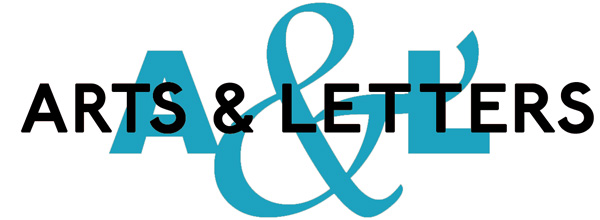Tag Archives: Fiction Prize
Ampersand Interview Series: Desiree Evans interviewed by Kelsie Doran

Checkout our latest interview in our Ampersand Interview Series with Desiree Evans.
In the latest Ampersand Interview, Assistant Managing Editor, Kelsie Doran, spoke with Desiree Evans about quarantine, forgiveness, and her piece, “Flesh” which will be published in the forthcoming Arts & Letters Issue.
Kelsie Doran: “Flesh” is a very raw and rich story that allows space for the reader to ponder their own morals, the definition of what’s wrong and what’s right, and how to forgive the past. Did writing Bootleg’s character help you with any personal moral dilemmas or allow you to forgive more freely in your own life?
Desiree Evans: Writing Bootleg’s character definitely gave me space to ponder how we forgive ourselves and others. It also really allowed me to reflect on the idea that we are more than our greatest mistakes, and to really think hard about what a transformative vision of justice can look like personally and on a larger political level. What does it mean to forgive ourselves? How do we learn and grow from our own mistakes? How do we hold ourselves and others accountable for harm? It’s something I’m still working through, as I learn more and more what it is to try to build accountable communities.
KD: Although this is a work of fiction, part of the reason this piece works so well is because of how real it feels, and the deep well of human emotions this story explores. Did you have people or events in your own life that helped shape the characters in this story or did you draw more from your imagination?
DE: Bootleg for me represented so many young men I grew up around, who got caught up in something that really didn’t reflect what they wanted to be in their lives. Often times, they were locked away and punished for nonviolent criminal offenses. Being institutionalized changed them. The process of returning “back” to the community was made even more complicated because of the trauma they experienced in those jails and prisons. In many ways I wanted to write a “post-war” story, but the war wasn’t a war being waged in another country. This was more about how I saw an entire generation of people my age behind bars, having grown up in impoverished and in resource-starved communities. When they returned to the world so many of them didn’t know how to be in the world, having spent their youthful years in institutions. The symptoms of trauma were there — shell shock, PTSD, an inability to return to any idea of “normal.” So I wondered: What does it mean to live again? How do you even begin? This was the seed for my story.
KD: The imagery and details within this piece helped bring the reader straight to the story – especially the scene that describes Bootleg’s time in solitary – so heartbreaking. Did you have to do a lot of outside research on this piece to arrive to those descriptive details?
DE: I definitely researched into the details around solitary confinement, especially in Louisiana. There was an article I read a long time ago that talked about the size of a solitary cell being the size of a twin mattress, and it really stuck with me. I also remember studying the case of Albert Woodfox, who served more than 40 years in solitary confinement in Louisiana’s Angola Prison, and just the idea of that much time in solitary always haunted me. I wanted to explore what it would mean to spend days, weeks, months, years, in a cell like that. What would it do to one’s psyche?
KD: Where do you write most often? Do you like to have a specific writing space?
DE: My ideal working space: my desk in my office surrounded by large stacks of books and notebooks that help to inspire the project I’m working on. I also have a wall of quotes and images that hang above my desk that speak to whatever project I’m working on as well. And I am a morning writer! When I’m working with my most ideal schedule, I love getting up at about 6am, when the world is still quiet/dreamlike, and prepping my desk for a morning writing sprint.
KD: What is your advice for writers who are shy or unsure about dipping their toes into the fiction genre?
DE: It can be terrifying, I know. I was afraid for years to try to write down my own stories, fearing not being good enough. I loved reading, and read voraciously growing up. I would say reading saved me in so many ways, but I couldn’t imagine ever being someone others read. But I realized the characters inside my head, the stories I made up about them to put myself to sleep at night: I realized how much it healed me and invigorated me when I actually wrote their stories down. To see them come to life before my eyes through my own words has been simply transformative. The creative drive is what feeds me to keep going, day in and day out: I love building worlds and crafting relationships between characters and sending them on journeys. For any writer unsure about writing fiction, I say this: there is so much power to seeing your characters come to life in a story of your own making. Step into that power, that wellspring of infinite possibility. It could be the very thing that changes everything you know about yourself and the world.
KD: How has quarantine affected your writing life?
DE: It’s been a hard quarantine. Fear, exhaustion, and constant worry about my family and the world. So many writers are empathic people, taking in a lot of energy from the world, and when there is a crisis, and so much pain around, it can be overwhelming, and sometimes incapacitating. All that to say, I’ve not written much, but I would say that I’ve learned a lot about myself, about what I need to keep going, about what I want for myself and my community and the larger world. And in many ways I’ve learned so much about our society and how it works (the good and the bad); the sort of realizations that will feed my fiction for years to come.
KD: What do you want to do next in writing? Is there anything you can share about forthcoming projects?
DE: I want to do it all, honestly. I just signed with an agent to work on my first novel projects, which I am so excited about. I am working on a children’s book at the moment, and I’m beyond excited to write for kids, teens, and adults. I am also interested in writing both fiction and creative nonfiction, and I love hybrid works that toe the line between nonfiction prose and poetry, so it’s my hope that I get to dabble across genres in the future to tell all the stories I hope to tell. A lot of my writing is regionally-focused, and I’m so excited to take readers into my home communities in the Deep South, into the rural landscapes that inspire so much of my work.
Desiree S. Evans is a writer from South Louisiana. She holds degrees in journalism from Northwestern University and international policy from Columbia University. She most recently was an MFA Fellow at the Michener Center for Writers at the University of Texas at Austin, where she studied fiction and poetry. Her writing has been supported by the Voices of Our Nations Arts Foundation (VONA), the Callaloo Creative Writing Workshop, Kimbilio Fiction, and the Hurston/Wright Foundation. Her short fiction has appeared in journals such as Gulf Coast, The Offing, and Nimrod Journal, among others. Visit Desiree on the web at desiree-evans.com, and on Instagram and Twitter: @literarydesiree.
Announcing the Winners of the 2020 Arts & Letters Prizes in Fiction, Creative Nonfiction, & Poetry
Arts & Letters Prize for Fiction:
Desiree Evans, “Flesh”
Judge: Devi Laskar
“I found such strong work in the finalists for this prize–each of the authors should be very proud. My choice for the prize is “Flesh,” a compelling story and a page-turner. As a reader I could follow Bootleg for another 200 pages.”
Finalists: Stephanie Gangi, “The Rescue,” Emma Wunsch, “Pick Up,” and Ann Harleman, “The Middle Distance.”
Susan Atefat Prize for Creative Nonfiction:
Lauren Henley, “Drive! (you’re lost little girl, you’re lost)”
Judge: Jason Allen
“Drive!” welcomes us to drive through a cinematic vision of the American desert, the author’s lush language effectively enlivening the dust and gnarled branches and precarious mountain roads that for all her life she’s longed to escape. Not only did I appreciate inhabiting this sunbaked landscape, I was impressed by how the author pulled me in close enough to fully empathize, her psychic and physical pain somehow conveyed without sliding into self-pity as her unspecified illness continues to progress. This is a truly moving essay.”
Finalists: Ruth Gila Berger, “Take one, take two, this isn’t working” and Millie Tullis, “Her Body as Petals: A Lyric Bibliography.”
Rumi Prize for Poetry:
Karyna McGlynn, “I Stand Outside This Woman’s Work,” “Love Song to a Wicked Stepsister Who Peaked in the 80s,” and “Upon Being Shot by the Shrink Ray”
Judge: Cate Marvin
“Any poet who manages to get a VC Andrews book into one poem, and to write another poem from the depths of the bottom of her own handbag, has my respect. Perverse celebrations of self-recognition, these poems are hilarious and exquisitely detailed, reminding us that poetry can be a hell of a lot of fun, when we let it.”
Finalists: Sarah Sousa, Caroline Bock, Lynda Kong, S. Yarberry, and Jessica Dionne
Each winner receives $1000; the winning work will appear in our Fall issue.
Meet 2015’s A&L Prizes Fiction Judge
Get to know this year’s Arts & Letters Prizes Fiction judge: Kyle Minor
We’re honored and excited to have Kyle Minor as this year’s fiction judge. He is an accomplished writer whose credentials and publications speak for themselves, having been published in prestigious journals like Best American Nonrequired Reading 2013, Gulf Coast, and The Iowa Review.
Kyle has just published his second novel, Praying Drunk, in February through Sarabande Books. It received rave reviews from The New York Times Book Review, The Atlantic, The Los Angeles Times and many others. Time Out New York said Minor’s writing “Ranges from cheeky observational comedy to frightening surrealism.” See his interviews in The Believer, Tin House, and Pen/American.







